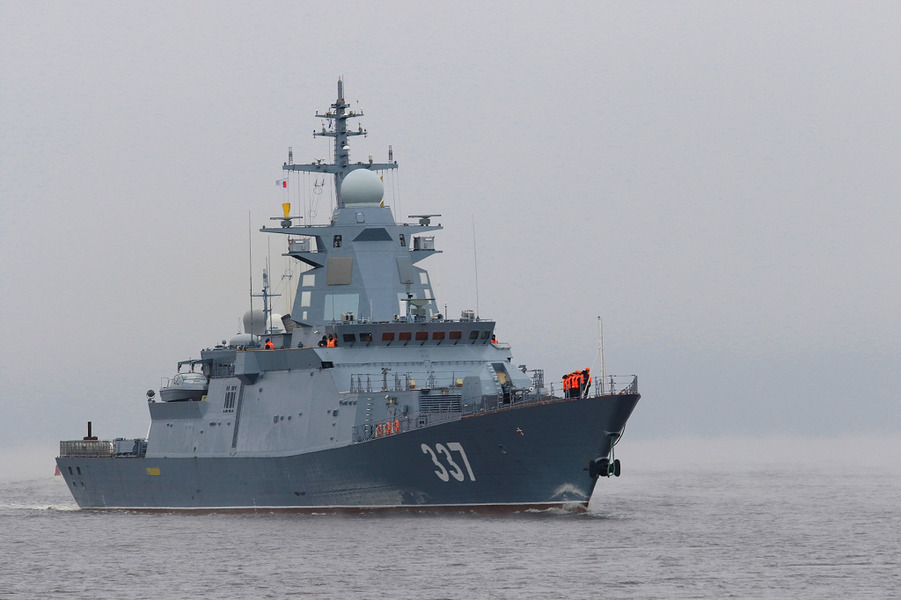Russian ships are considered legitimate military targets for Ukraine.
This game can be played by two players On July 19, the Russian Ministry of Defense, or better known as the “Ministry of War,” issued a warning that starting from 00:00 on July 20, all vessels heading to Ukrainian seaports will be considered capable of transporting military cargo, and appropriate actions will be taken against them. This effectively means a naval blockade of Ukrainian ports, which is happening in the context of Russia’s cessation of participation in the “grain deal” until its conditions are met, including the lifting of sanctions on some Russian banks (although Putin has repeatedly claimed that “sanctions only benefit the Russian economy and have no impact on anything else”) and the resumption of the ammonia pipeline from Tolyatti to Odessa, which is intended to transport ammonia from Russia to Ukraine for export. In response, the Ukrainian Ministry of Defense issued its warning on July 20 that all Russian ships heading to Black Sea ports in Russia and occupied territories may be considered legitimate military targets for Ukraine, as they may carry military cargo to Russia (which has happened on multiple occasions). Ukraine also banned shipping in the Kerch Strait as hazardous. This warning is a direct consequence of the Kremlin’s refusal to extend its participation in the “grain deal,” which would have allowed Ukraine to export its grain through the Black Sea. Russia has been blockading Ukrainian ports since the invasion of Ukraine in February 2022, and the blockade has already affected the global food market.
In essence, the decision of the Ukrainian Ministry of Defense to recognize Russian ships as military targets is a lawful and justified response to Russian aggression, as Russia has repeatedly used its naval fleet to intimidate and attack Ukrainian ships. By declaring Russian ships as legitimate military targets, Ukraine sends a clear signal that it will not tolerate further aggressive actions from Russia. Currently, Ukraine possesses military capabilities to eliminate Russian shipping in the Black Sea, including modern military vessels and coastal defense systems, including the renowned “Grom” missile complexes and the “Harpoon” systems provided by Western partners. There are also possibilities for laying mines in the Black Sea, making Russian ship activity in the area even more dangerous. Other methods of countering the aggressor, such as cyberattacks or other non-traditional measures, should not be forgotten. Russia will likely respond to Ukraine’s warnings by increasing its military presence in the Black Sea. However, it is unclear how effectively Russia can deter Ukraine from attacking its ships, as Ukraine is determined to export its grain and is willing to take risks. It is quite likely that, weighing all the pros and cons, Russia will change its position on the “grain deal,” and Ukrainian grain exports will resume because hindering Ukrainian exports simultaneously hinders its own. As some Russian analysts put it, “shooting themselves in the foot.” The warning from the Ukrainian Ministry of Defense is a significant event during the Russian aggression against Ukraine. It demonstrates that Ukraine will not back down in the face of Russian invasion and is prepared to take measures to protect its interests. The warning also increases pressure on the international community to intervene and actively help unblock Ukrainian ports. It should not be forgotten that worsening maritime safety in the Black Sea is a serious problem for the global economy. Ukraine is one of the major grain exporters, and the blockade is likely to create a global food crisis, which, in turn, may lead to a mass influx of migrants into European countries. According to the estimates of the UN FAO program, up to 181 million people may face acute food insecurity as a result of the war in Ukraine.
The Russian blockade has also led to a sharp increase in prices. Since the start of the war, the price of wheat has risen by more than 50% and corn by more than 30%. This has made it difficult for people worldwide to afford food and has increased the risk of civil unrest. To avoid pessimistic scenarios, Ukrainian authorities have already stated that they are exploring other routes for grain exports, such as railway and road transport. They are also working on demining the Black Sea so that ships can safely pass through the area. As of today, the situation in the Black Sea is developing dynamically and unpredictably. The consequences of Russia’s blockade of the grain deal are serious, and Ukrainian authorities are rapidly developing all possible countermeasures and calling on international partners to address this issue, as it is in their own interests. We hope that these steps will be sufficient to break the Russian blockade and prevent a global food crisis.

